Home>Furniture>Outdoor Furniture>How To Keep Ants Off My Patio
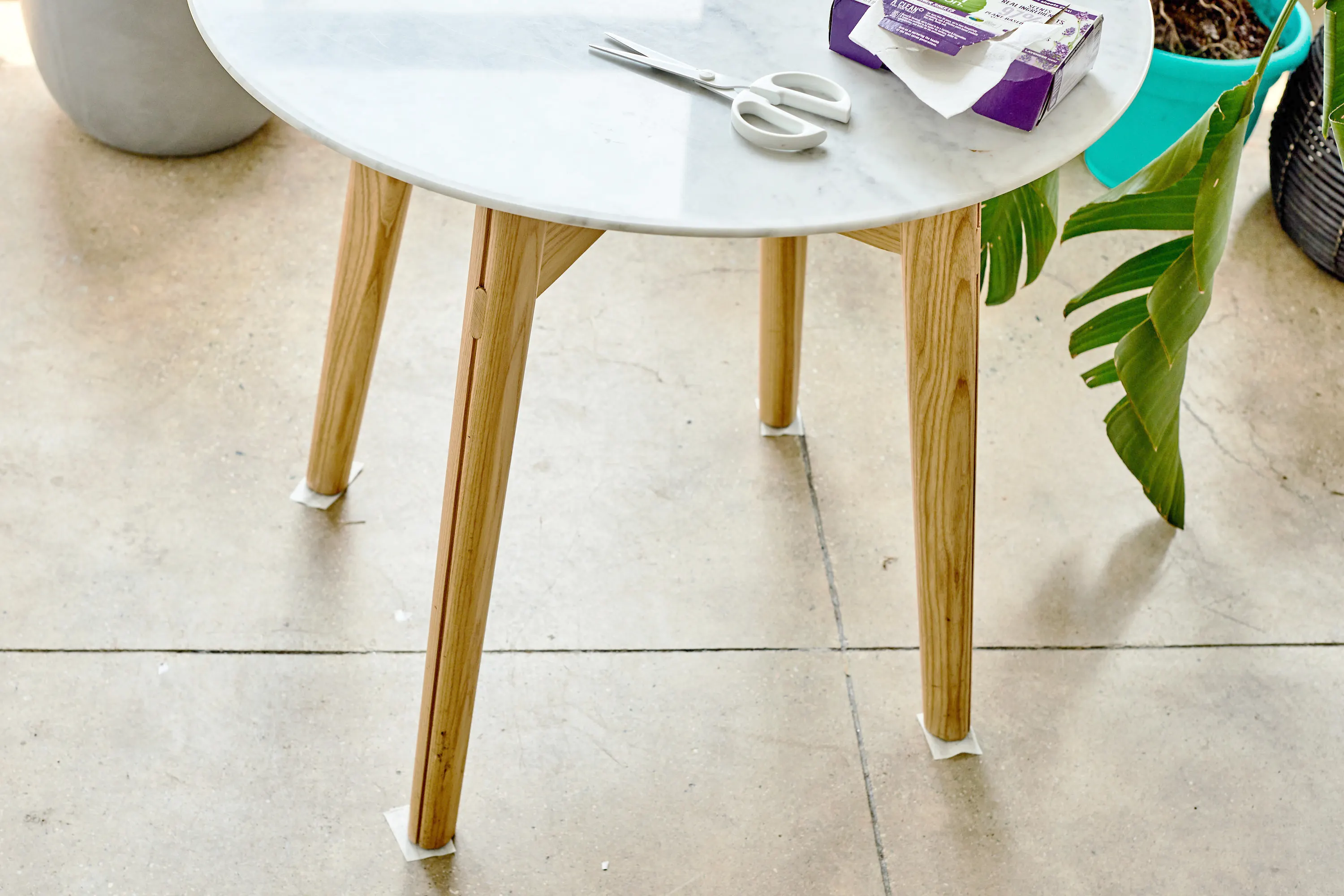

Outdoor Furniture
How To Keep Ants Off My Patio
Modified: September 1, 2024
Learn effective ways to keep ants away from your patio and outdoor furniture.
(Many of the links in this article redirect to a specific reviewed product. Your purchase of these products through affiliate links helps to generate commission for Storables.com, at no extra cost. Learn more)
Introduction
Welcome to your ultimate guide on how to keep ants off your patio. If you love spending time outdoors, enjoying the fresh air and sunshine on your patio, the last thing you want is to be bothered by ants. Not only can they be a nuisance, but they can also spoil your outdoor experience by invading your space and potentially contaminating your food and drinks.
Ants are social insects that live in colonies and have a strong sense of smell, allowing them to detect and locate sources of food easily. While they play an essential role in the ecosystem, they can quickly become a pest when they invade our patios and homes. The good news is that there are several natural and effective ways to keep ants away and enjoy a pest-free patio.
In this guide, we will delve into understanding ant behavior, identifying common patio ants, and providing you with practical solutions to keep ants off your patio. We will explore natural remedies, preventive measures, and tips on eliminating ant colonies for long-term pest control. So, let’s dive in and discover how to reclaim your patio from these unwanted intruders!
Key Takeaways:
- Keep ants off your patio by cleaning regularly, creating barriers, using natural repellents, and eliminating ant colonies. Consistency and persistence are key to enjoying a pest-free outdoor space.
- Understanding ant behavior and identifying common patio ants are crucial for implementing effective natural and preventive measures. With patience and diligence, you can reclaim your patio from unwanted ant intruders.
Read more: How To Keep Ants Off Of Patio Furniture
Understanding Ant Behavior
Before we can effectively keep ants off our patio, it’s essential to understand their behavior. Ants are highly organized insects that live in large colonies, usually consisting of worker ants, the queen, and sometimes soldier ants. They communicate using chemical signals called pheromones, which help them navigate, find food sources, and establish trails to guide other ants to the resources.
When ants discover a food source, they leave a trail of pheromones as they return to the colony, alerting other ants to the location. This is why you often see a steady stream of ants marching in a straight line when they find a food source. Understanding this behavior is crucial because it allows us to disrupt their communication and break the trail, making it less enticing for them to invade our patio.
Ants are attracted to various food sources, including sugary substances, crumbs, and even pet food left outdoors. They are also drawn to standing water, as they require moisture to survive. By eliminating these attractants and taking preventive measures, we can significantly reduce the likelihood of ants infesting our patio.
It’s worth noting that different species of ants may exhibit slightly different behaviors and preferences. While some ants are notorious for invading kitchens and pantries, others may be more commonly found outdoors, making patios and gardens their target. Identifying the specific ant species infesting your patio will help in determining the best strategies for dealing with them.
Now that we have a better understanding of ant behavior, let’s move on to identifying the common patio ants and their characteristics.
Identifying Common Patio Ants
When it comes to dealing with ants on your patio, it’s important to identify the species of ants you’re dealing with. Different ants have different habits, food preferences, and behaviors, which can influence the most effective methods for keeping them away. Here are some common patio ants you may encounter:
- Carpenter ants: Carpenter ants are large ants that are attracted to moist wood, making them a common problem for homeowners with outdoor wooden structures like decks and patios. They will excavate galleries in the wood, causing structural damage over time.
- Pavement ants: Pavement ants are small brown or black ants that build nests in cracks and gaps in pavement, hence their name. They are often found foraging for food on patios and sidewalks.
- Odorous house ants: Odorous house ants are small, dark brown ants that emit a strong, unpleasant odor when crushed. They are attracted to sweet foods and can be found nesting under patio stones or in nearby vegetation.
- Argentine ants: Argentine ants are small, light brown ants commonly found in warm climates. They are attracted to sugary foods and are known for forming massive colonies with multiple queens. They can quickly infest a patio or garden area.
By familiarizing yourself with these common patio ants, you can better understand their behaviors and devise effective strategies to keep them away from your outdoor living space.
Now that we’ve identified these common patio ants, it’s time to explore natural ways to keep ants off your patio. These methods are not only effective but also environmentally friendly, ensuring that you can enjoy your outdoor space without the use of harmful chemicals. Let’s get started!
Natural Ways to Keep Ants Off Your Patio
When it comes to keeping ants off your patio, there are several natural and eco-friendly methods you can employ. By using these methods, you can effectively deter ants from invading your outdoor space without resorting to harmful chemicals. Here are some effective strategies:
- Cleaning and Removing Food Sources: The first step in keeping ants away from your patio is to eliminate any potential food sources. This includes regularly cleaning up food crumbs and spills, especially sweet substances that ants are attracted to. Ensure that your patio and surrounding areas are kept clean and free of food debris that may entice ants.
- Creating Physical Barriers: Another effective way to keep ants off your patio is to create physical barriers that prevent them from accessing your space. This can be done by sealing any cracks or gaps in the walls, windows, and doors. Installing weather stripping and door sweeps will also help to keep ants from entering your patio. Additionally, consider using ant-proof containers for storing food and keeping them tightly sealed.
- Using Natural Repellents: There are several natural substances that ants dislike and can be used as repellents. Some popular options include peppermint oil, vinegar, and citrus peels. Mixing these substances with water and spraying them around your patio can help deter ants. You can also scatter cinnamon, coffee grounds, or dried bay leaves around the patio edges to create a barrier that ants won’t cross.
- Eliminating Ant Colonies: If you notice a significant ant infestation on your patio, it may be necessary to eliminate the ant colonies. This can be done using natural ant baits or diatomaceous earth. Ant baits are attractive to ants and contain substances that will kill the colony. Diatomaceous earth is a natural powder that dehydrates and kills the ants upon contact.
It’s important to note that these natural methods may require some persistence and consistency to achieve the desired results. Ants are persistent creatures, and it may take time to disrupt their trails and discourage them from returning to your patio. By combining these natural strategies and optimizing them for your specific situation, you can achieve long-term ant control and enjoy a pest-free patio.
Now that we’ve explored natural ways to keep ants off your patio, let’s focus on preventive measures to stop ants from returning.
Cleaning and Removing Food Sources
The first step in keeping ants off your patio is to clean up and remove any potential food sources that may attract them. Ants are highly skilled at detecting even the smallest traces of food, so it’s crucial to diligently maintain a clean and tidy patio area. Here’s how you can effectively accomplish this:
- Sweep and mop regularly: Sweep your patio regularly to remove any food crumbs or debris that may have accumulated. Use a mop or a damp cloth to clean the surface thoroughly.
- Clean outdoor furniture: Pay attention to your outdoor furniture, including tables, chairs, and cushions. Wipe them down and check for any spills or food residues. Clean thoroughly and remove any remnants that may attract ants.
- Wash open containers: If you have open containers on your patio, such as pet food dishes or bird feeders, make sure to clean and empty them regularly. Keep the areas around these containers clean as well to prevent residue buildup.
- Keep trash bins sealed: Ensure that your outdoor trash cans have tight-fitting lids and are properly sealed. Clean them regularly and avoid leaving any exposed trash or food waste near your patio.
- Remove fallen fruits: If you have fruit trees or plants near your patio, regularly remove any fallen fruits. These can serve as a food source for ants and attract them to your outdoor space.
By implementing these cleaning practices and removing food sources, you can significantly reduce the appeal of your patio to ants. Consistency is key, so make sure to maintain a regular cleaning routine to prevent buildup of food debris.
Now that we’ve covered cleaning and removing food sources, let’s move on to creating physical barriers to keep ants off your patio.
To keep ants off your patio, try sprinkling cinnamon, black pepper, or cayenne pepper around the perimeter. Ants dislike the strong scent and will avoid crossing it.
Read more: How To Keep Spiders Off My Patio
Creating Physical Barriers
Creating physical barriers is an effective strategy to keep ants from accessing your patio. By sealing off potential entry points and blocking their paths, you can deter ants from invading your outdoor space. Here are some methods to create physical barriers:
- Seal cracks and gaps: Inspect your patio area for any cracks or gaps in the walls, windows, or doors. Seal them using caulk or weatherstripping to prevent ants from squeezing through and gaining entry.
- Install door sweeps: Use door sweeps on patio doors to block the gap between the bottom of the door and the threshold. This helps prevent ants from crawling under the door and entering your patio.
- Use ant-proof containers: Store any food or snacks that you bring onto your patio in ant-proof containers. These containers have tightly sealed lids that prevent ants from accessing the contents.
- Protect outdoor furniture legs: If your patio furniture has legs that touch the ground, consider placing them in small bowls filled with soapy water. This creates a physical barrier that ants cannot cross.
- Keep vegetation trimmed: Trim plants and bushes near your patio, ensuring they don’t touch the structure. This prevents ants from using the foliage as bridges to access your patio.
By implementing these physical barriers, you can limit the pathways for ants to enter your patio. It’s important to regularly inspect and maintain these barriers to ensure their effectiveness. Remember, prevention is key to keeping ants at bay and enjoying a pest-free patio.
Now that we’ve explored creating physical barriers, let’s discover the use of natural repellents to ward off ants from your outdoor space.
Using Natural Repellents
Natural repellents are an effective and eco-friendly way to keep ants away from your patio. By utilizing substances that ants dislike, you can create a deterrent that encourages them to stay away. Here are some natural repellents you can use:
- Peppermint oil: Ants are not fond of the strong scent of peppermint oil. Mix a few drops of peppermint oil with water and spray it around your patio, focusing on potential entry points and ant trails.
- Vinegar: The pungent smell of vinegar is unpleasant to ants. Create a mixture of equal parts vinegar and water and spray it on your patio surfaces, including cracks and crevices where ants may enter.
- Citrus peels or citrus-based sprays: Ants have an aversion to citrus scents. Place citrus peels such as lemon, lime, or orange around your patio or make a citrus-based spray by combining citrus juice with water, then spray it around your patio edges.
- Cinnamon: Sprinkle cinnamon powder around the perimeter of your patio or at entry points where ants are likely to enter. Ants dislike the smell of cinnamon and will avoid crossing it.
- Coffee grounds: Scatter used coffee grounds around your patio to create a barrier that ants will avoid. Replenish the coffee grounds periodically for optimal effectiveness.
It’s important to note that while natural repellents can be effective, they may require regular application and reapplication to maintain their potency. Ants may also find new paths or adapt to the repellents over time, so it’s crucial to monitor and adjust your strategies as needed.
Now that we’ve explored natural repellents, let’s move on to the importance of eliminating ant colonies for long-term pest control.
Eliminating Ant Colonies
While natural repellents and preventive measures can help keep ants off your patio, sometimes it is necessary to take more proactive steps to eliminate ant colonies for long-term pest control. Here are some methods you can use:
- Natural ant baits: Natural ant baits can be an effective way to lure ants and eliminate the entire colony. Place bait stations near ant trails or areas of high ant activity. The worker ants will take the bait back to the colony, where it will be shared, ultimately leading to the demise of the colony.
- Diatomaceous earth: Diatomaceous earth is a natural powder made from fossilized aquatic organisms. It is abrasive to ants’ exoskeletons, causing dehydration and ultimately killing them. Sprinkle diatomaceous earth around ant entry points or directly on their trails, ensuring it comes into contact with the ants.
- Boiling water: For ant colonies that are established in soil or near paved areas, pouring boiling water directly into the ant mounds or nest entrances can be an effective method. The high temperature will kill the ants and disrupt the colony.
- Natural insecticides: If natural baits and remedies are not successful, you may consider using natural insecticides as a last resort. Look for products containing natural ingredients like pyrethrin or neem oil, which are derived from plants and are less harmful to the environment.
It’s important to remember that eliminating ant colonies may require patience and persistence. Ants have a strong social structure and may rebuild their colonies if not fully eradicated. Regularly monitor the treated areas and reapply if necessary to ensure complete elimination.
By implementing these tactics and taking a proactive approach in eliminating ant colonies, you can achieve long-term pest control and enjoy a patio free from ant infestations.
Now that we’ve discussed eliminating ant colonies, let’s move on to preventive measures to stop ants from returning to your patio.
Preventive Measures to Stop Ants from Returning
While taking steps to eliminate existing ant colonies is important, it’s equally crucial to implement preventive measures that discourage ants from returning to your patio. By following these preventive measures, you can significantly reduce the chances of future ant infestations:
- Maintain cleanliness: Continue to keep your patio and surrounding areas clean and free of food debris. Regularly sweep, mop, and wipe down surfaces to remove any potential food sources that may attract ants.
- Store food properly: Keep all food, both indoors and outdoors, in tightly sealed containers. This not only prevents ants from accessing the food but also helps to maintain its freshness.
- Address moisture issues: Ants are attracted to moisture, so it’s important to address any moisture problems in and around your patio. Fix leaky faucets, ensure proper drainage, and avoid letting standing water accumulate.
- Trim vegetation: Regularly trim plants, bushes, and trees that are near your patio. Ants can use branches and foliage as bridges to access your patio, so keeping them trimmed will help prevent their entry.
- Seal entry points: Continuously inspect and seal any cracks, gaps, or openings in the structure of your patio. This includes windows, doors, and wall crevices. By sealing these entry points, you reduce the chances of ants finding their way inside.
- Regularly monitor: Keep an eye out for any signs of ants or ant trails on your patio. Promptly address any emerging issues to prevent them from establishing new colonies.
Implementing these preventive measures will help create an environment that is less attractive to ants, making your patio less prone to infestations. By being proactive and consistent in your efforts, you can enjoy a pest-free patio and outdoor space.
To conclude, by combining natural deterrents, proactive measures, and proper maintenance, you can keep ants off your patio and reclaim your outdoor living space. Remember to tailor your approach to the specific ant species and circumstances you are dealing with. With persistence and diligence, you can create an ant-free haven where you can fully enjoy the beauty and serenity of your patio.
Read more: How To Keep Bees Off Patio
Conclusion
Keeping ants off your patio is essential for creating a pleasant outdoor space where you can relax and enjoy your surroundings. By understanding ant behavior, identifying common patio ants, and implementing natural and preventive measures, you can successfully ward off these unwanted intruders.
Start by cleaning your patio regularly and removing any potential food sources that may attract ants. Creating physical barriers, such as sealing cracks and gaps, installing door sweeps, and using ant-proof containers, will further deter ants from accessing your patio. Additionally, utilizing natural repellents like peppermint oil, vinegar, citrus peels, cinnamon, and coffee grounds can help make your patio an unappealing environment for ants.
When faced with a significant ant infestation, take measures to eliminate ant colonies. Natural ant baits, diatomaceous earth, boiling water, or natural insecticides can effectively eradicate existing ant colonies. Once the pests are eliminated, it’s important to take preventive measures to stop ants from returning. This includes maintaining cleanliness, proper food storage, addressing moisture issues, trimming vegetation, sealing entry points, and regularly monitoring your patio.
Remember, the key to successfully keeping ants off your patio is consistency and persistence. Continuously implement these strategies and adjust your approach as needed. By doing so, you can create a pest-free patio and truly enjoy your outdoor living space.
So, reclaim your patio from ants and relish in the beauty of nature without any unwanted visitors. With the knowledge and methods provided in this guide, you can confidently keep ants at bay and fully embrace the serenity and enjoyment of your patio.
Frequently Asked Questions about How To Keep Ants Off My Patio
Was this page helpful?
At Storables.com, we guarantee accurate and reliable information. Our content, validated by Expert Board Contributors, is crafted following stringent Editorial Policies. We're committed to providing you with well-researched, expert-backed insights for all your informational needs.
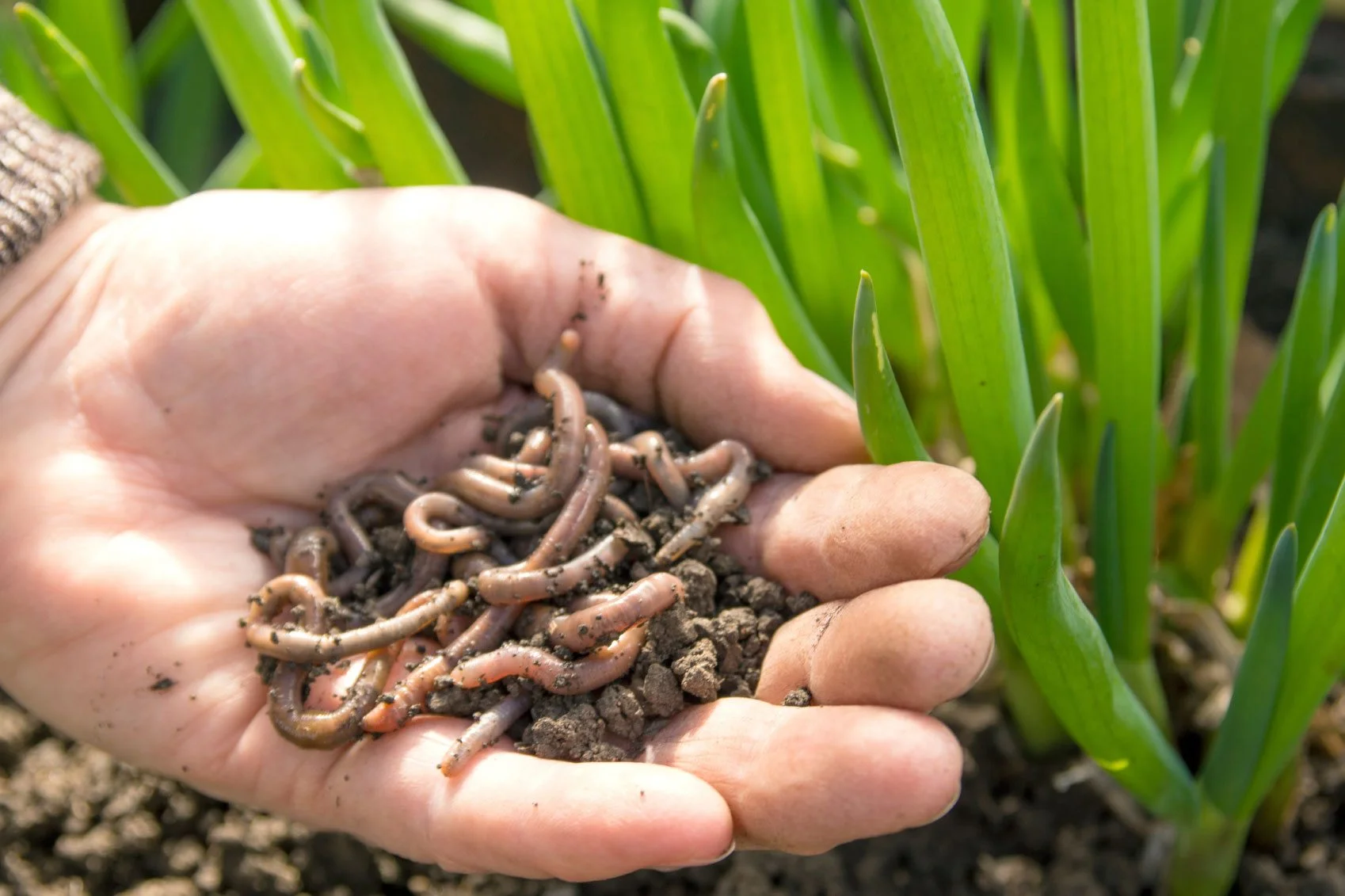

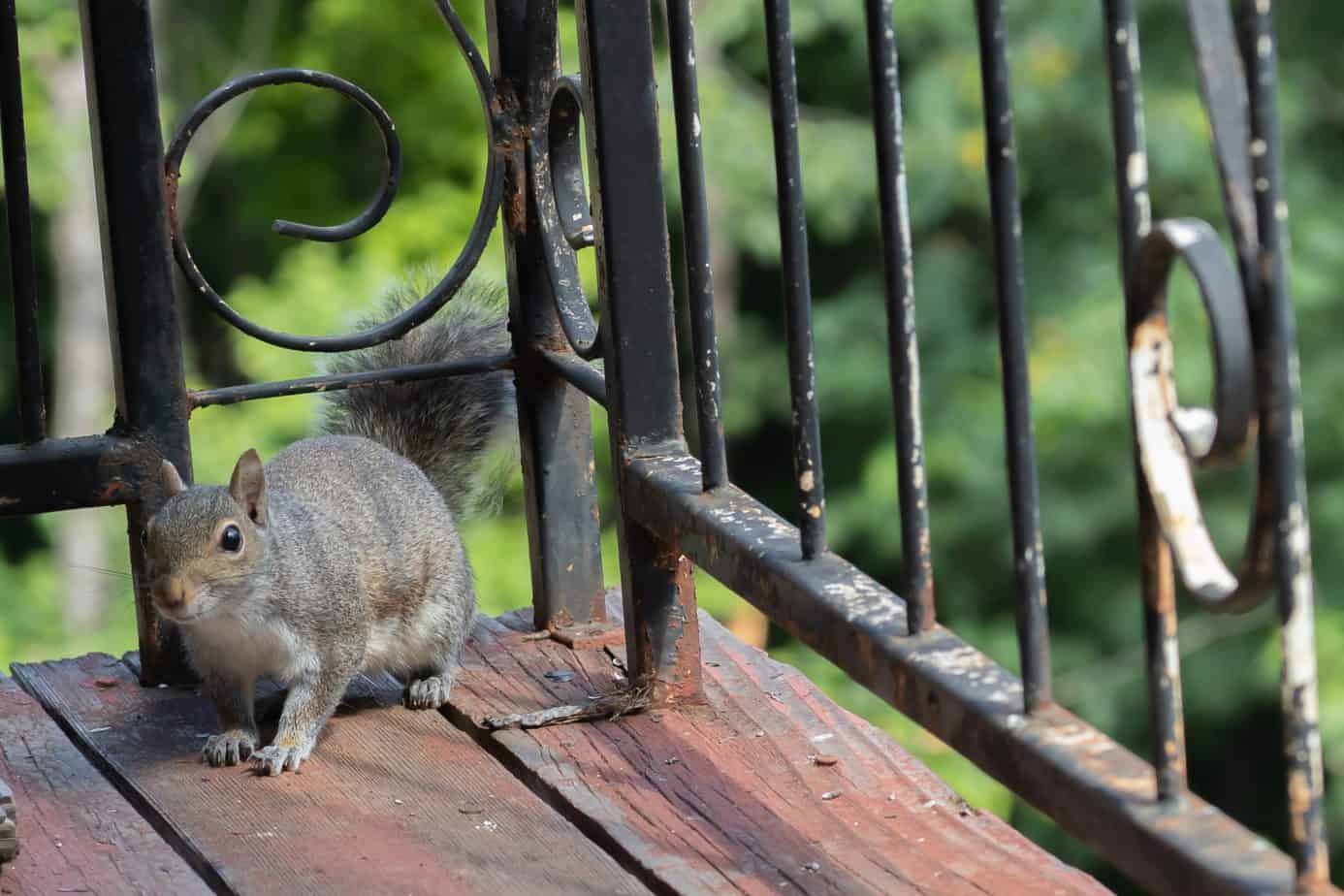
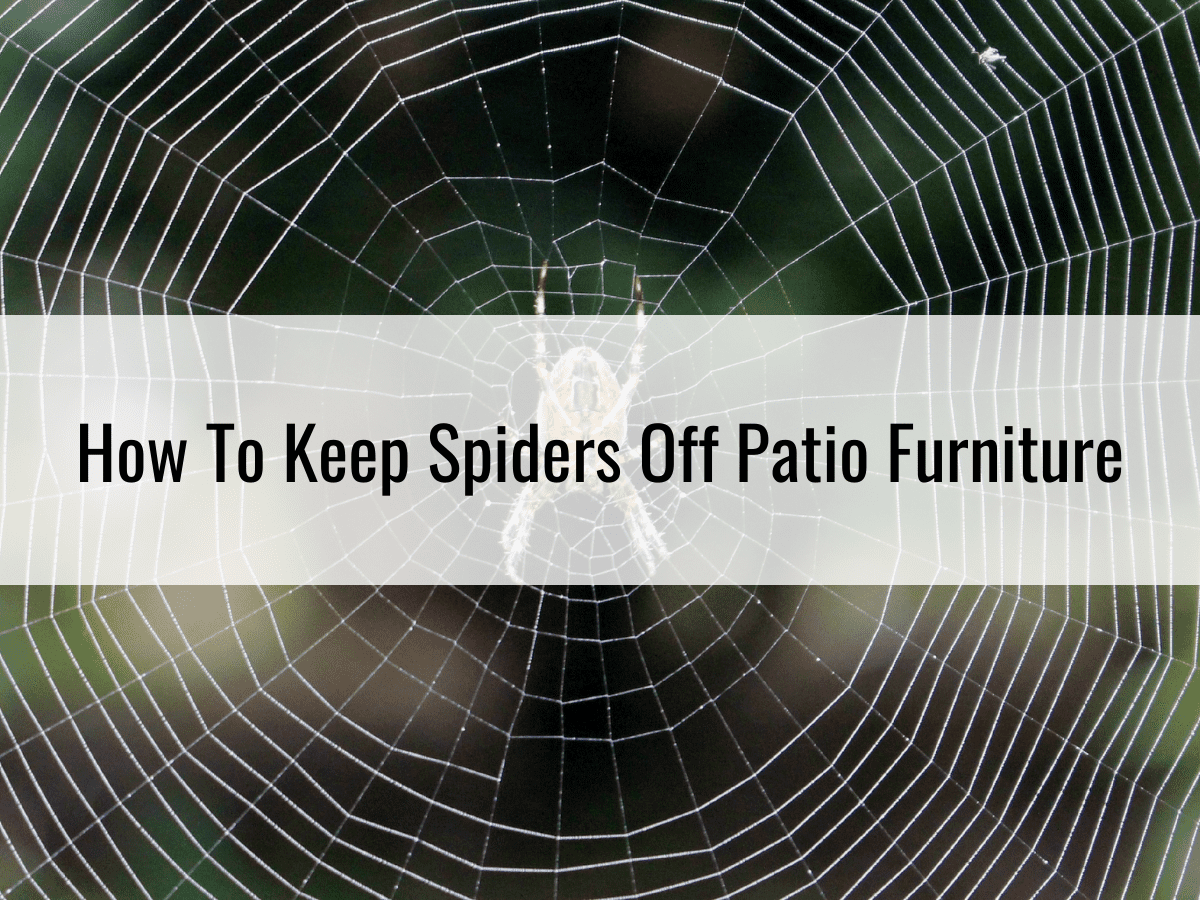


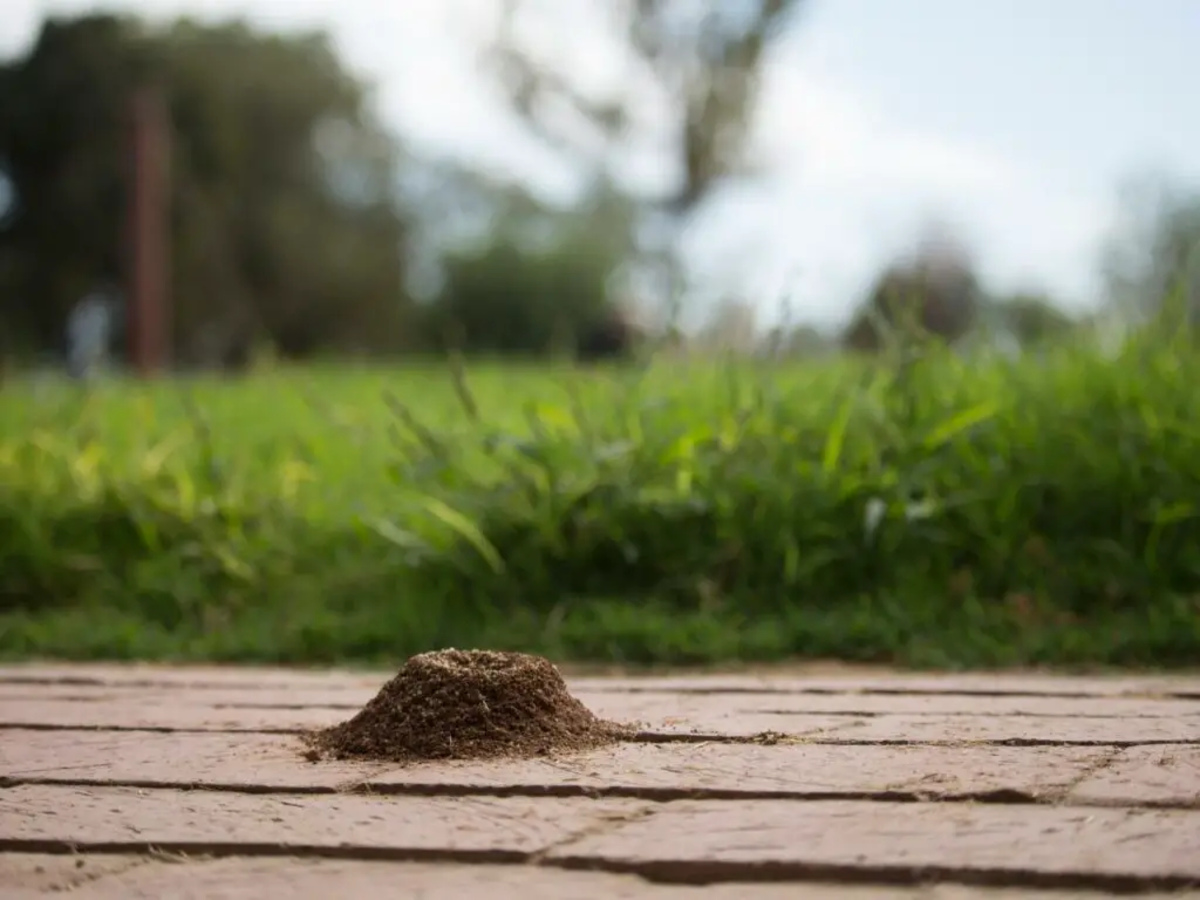

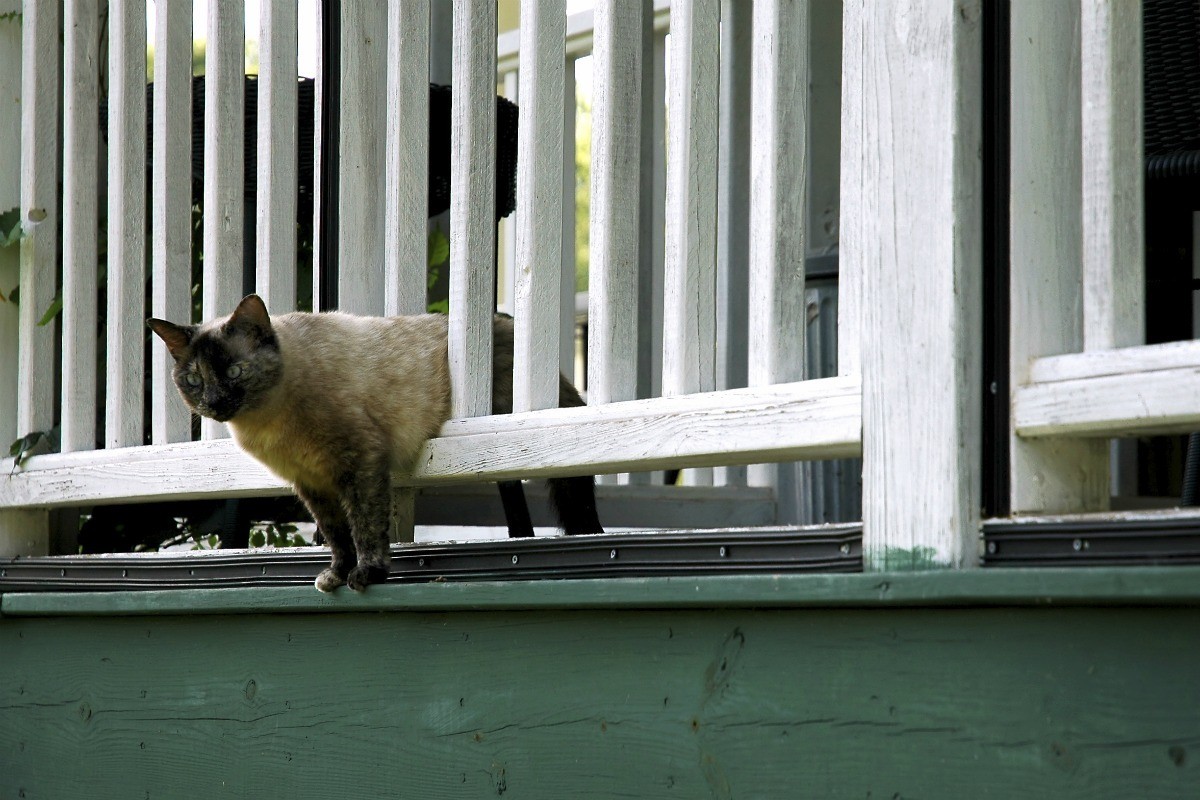
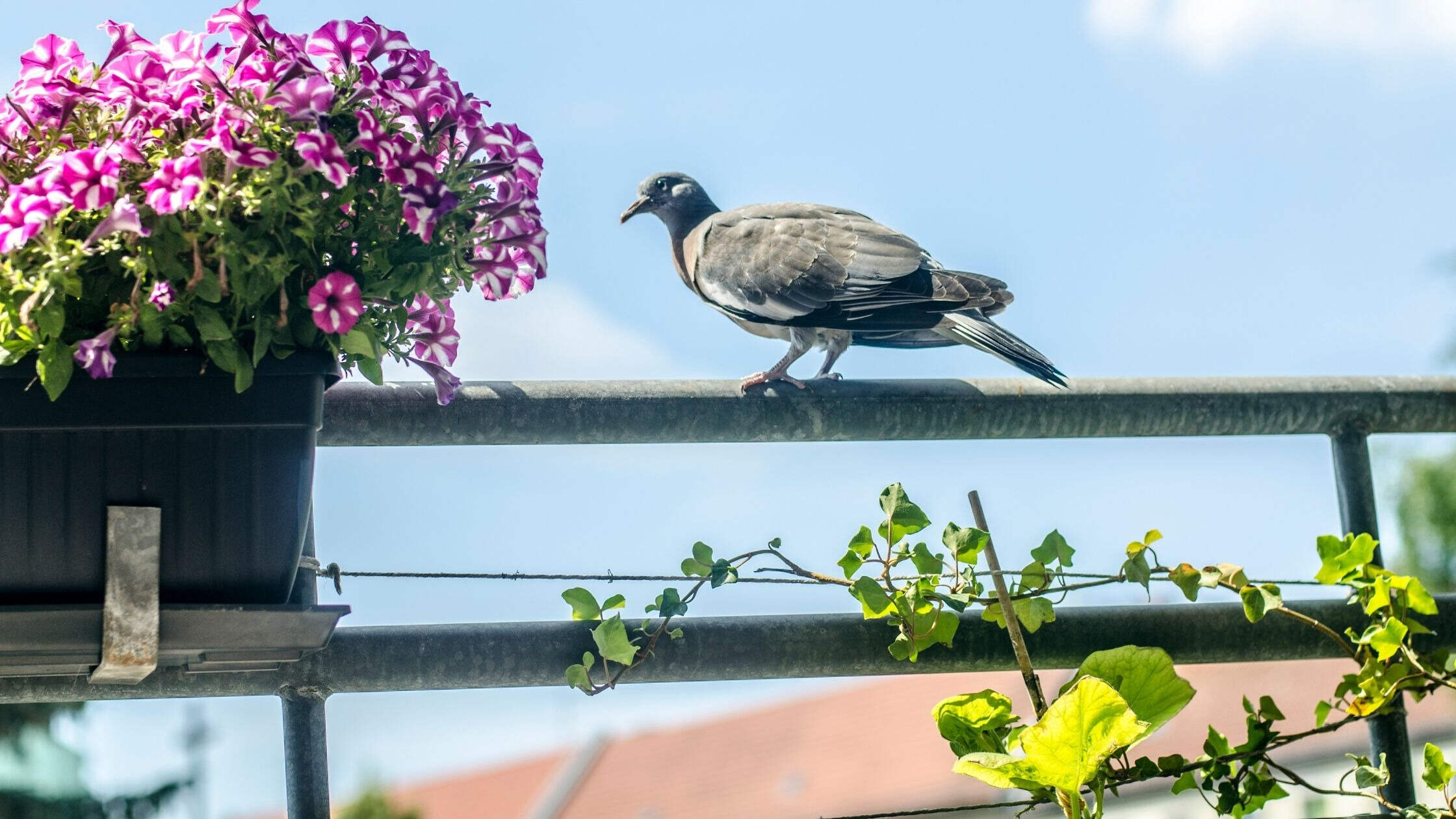

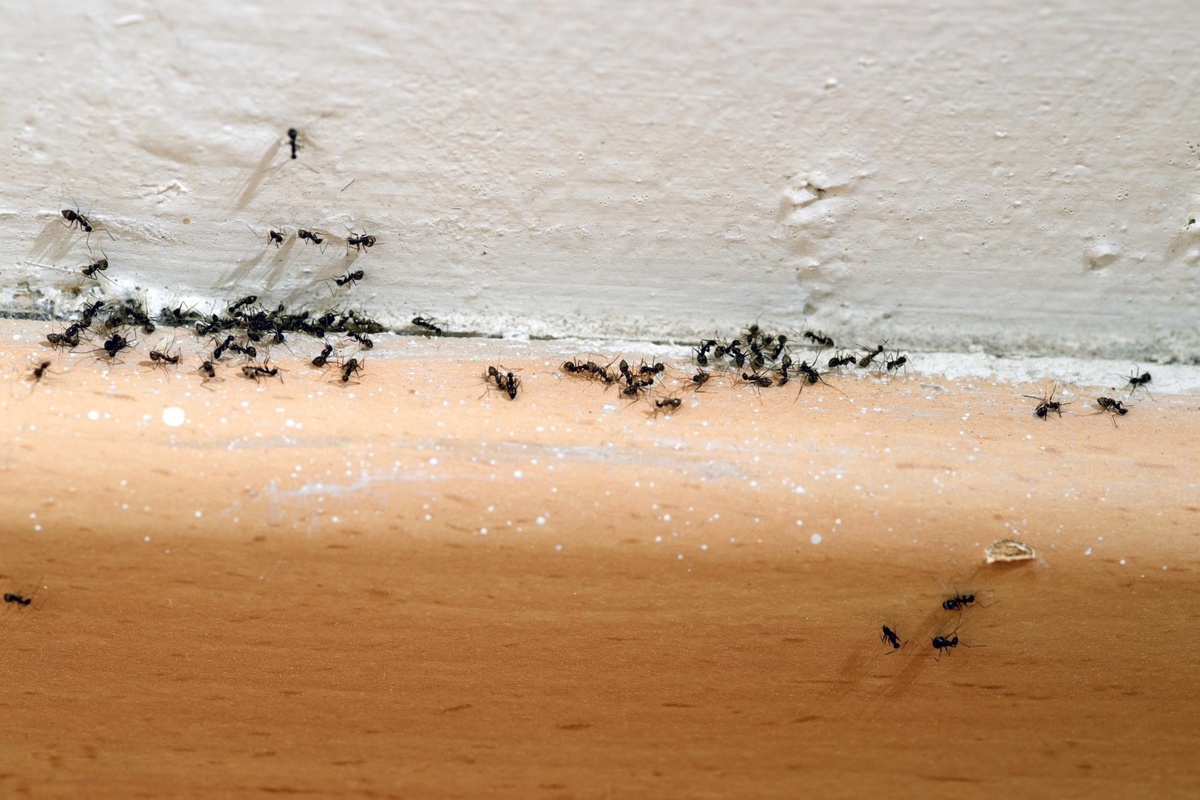


0 thoughts on “How To Keep Ants Off My Patio”